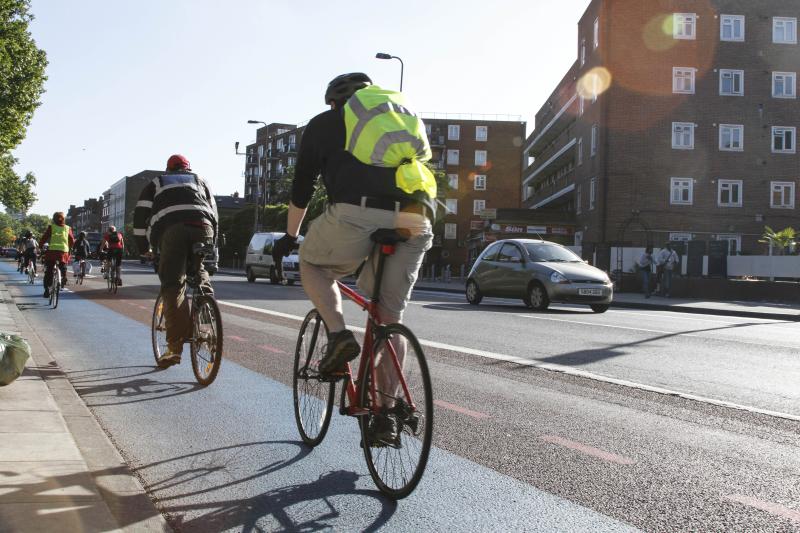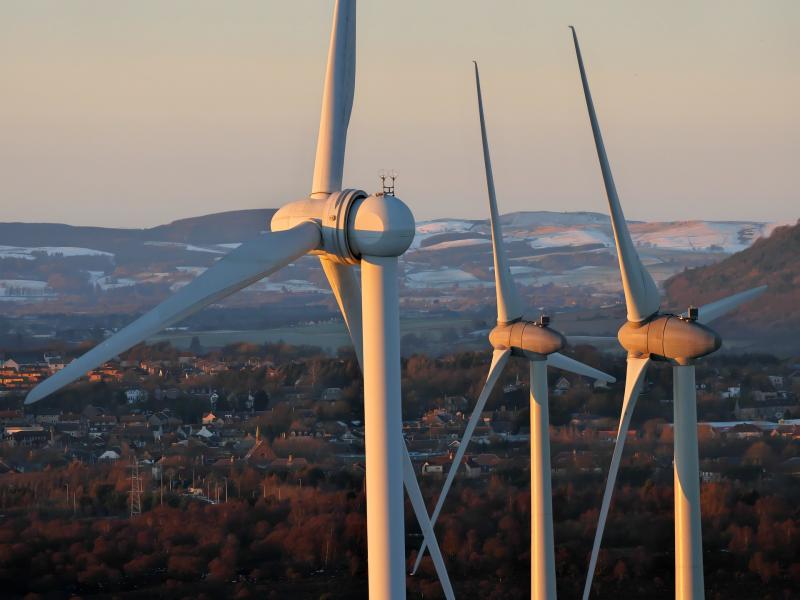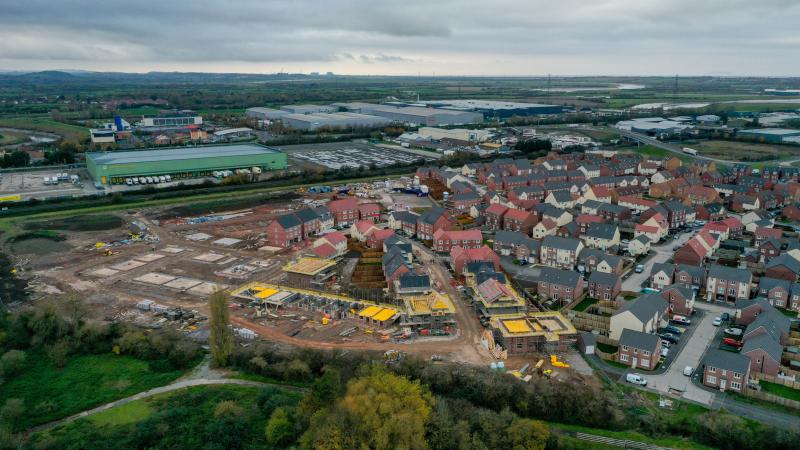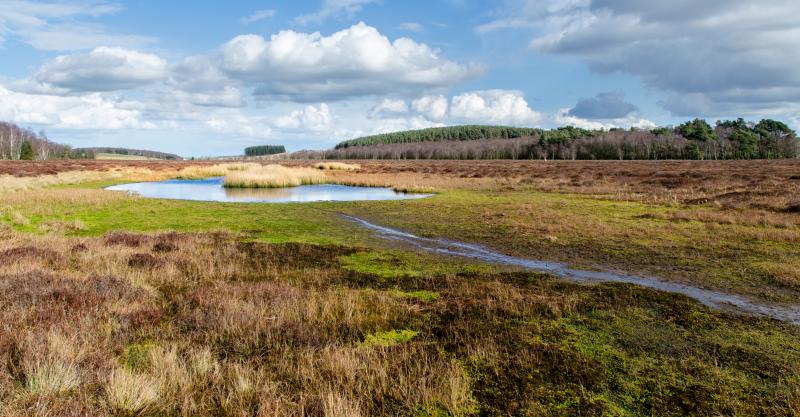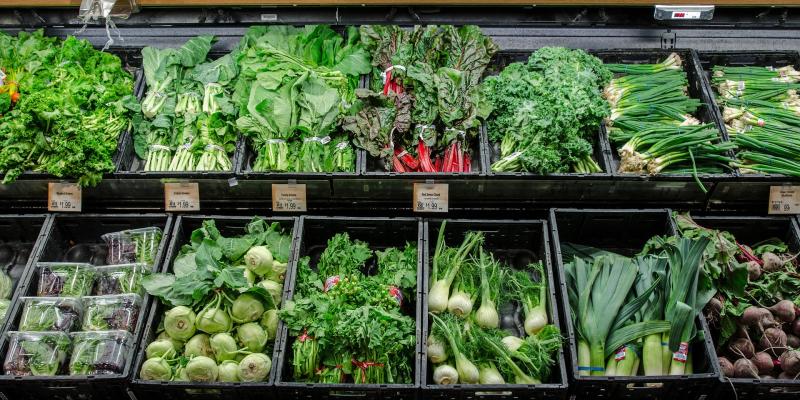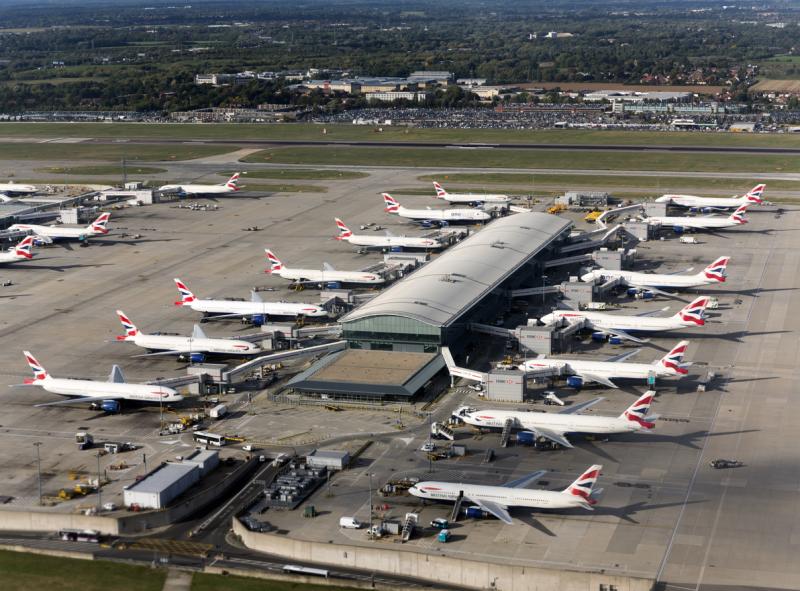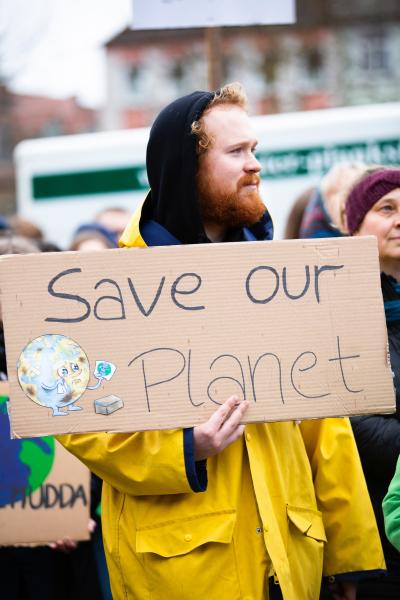Mike Childs16 Nov 2021
The UK response to the climate and ecological emergencies
The Heat and Building Strategy, the Net Zero Strategy, the Comprehensive Spending Review, international agreements on deforestation, coal, finance, methane and more all play a part in responding to the climate emergency. Can we at last rest easy?
Almost 3 years ago I drew up a list of the main actions the government should take if the UK is to do its fair share in the global effort to stop climate breakdown. So how do the government’s new plans match up?
1. Bring forward the deadline for all new cars, vans, and buses to be zero carbon to 2030
The government has said sales of new petrol or diesel cars or vans must end in 2030, although hybrid electric/fossil fuel vehicles will be allowed until 2035. It’s set a target of 2040 for motorcycles, buses and HGVs. It requires vehicle manufacturers to deliver these goals step by step. And it's investing in electric vehicle chargers.
The UK is one of the countries leading the electric vehicle revolution that's happening across the world. It will make a very big difference to transport carbon emissions. But in the UK, much of the carbon savings could be wiped out by the £27 billion roadbuilding programme.
The pace of change could be accelerated, but without much greater investment there's a real fear that the UK could lose jobs to other countries that are further advanced in manufacturing electric vehicles. There needs to be a real focus on a just transition for automobile workers and industries to transfer to greener alternatives.
2. Invest in urban transport: cycling, walking and public transport
The government says it wants 50% of all journeys in cities to be cycled or walked by 2030, up from 42% now. It has increased funding for cycling and walking to £400 million a year for the next 5 years. But research for Friends of the Earth suggests £2 billion per year is needed if we're to catch up with countries like the Netherlands on cycling.
City regions have been provided with £5.7 billion between them over 5 years for capital expenditure on public transport, cycling and walking. In addition, around £3 billion is being provided to other local authorities for buses over a 5-year period. Friends of the Earth and others have been calling for £15 billion over the same period for a transformative programme to make bus travel free, starting with the under-30s, and remedying the parlous state of rural bus services.
This government expenditure – which is for England only, as transport policy and expenditure is devolved to Scotland, Wales, and Northern Ireland – is just a fraction of what's needed. Our towns and cities will remain dominated by the car, with its associated air pollution, noise, and carbon emissions.
3. Decarbonise the electricity grid, and electrify transport and heating by 2030
The government has set a target to decarbonise the electricity grid by 2035. The Renewable Energy Association says it can be done faster - by 2032 with the right policy support.
In the past 12 months we’ve seen a paltry 1.4% increase in renewable energy capacity. Bold ambitions won’t be met by foot dragging, including a continued de facto block on onshore wind in England. Scotland's SNP/Green Party coalition government has just set a target to double onshore wind capacity in the country by 2030.
The renewables industry has already been an economic boon for the UK, particularly in former industrial areas that were left behind as industry closed down or relocated abroad over previous decades. The government needs to do a lot more if these job and economic gains are to continue. It needs to reduce VAT on domestic renewables and clean technologies, remove unfair planning blockages for onshore wind, and have annual "Contract for Difference" auctions to provide the renewables industry with the economic incentives and long-term commitments it needs to continually invest and grow.
Without more policy and financial changes, the new 2035 grid-decarbonisation target will be missed, and legally binding carbon-reduction targets will be in jeopardy. The Climate Change Committee has pointed out that a plan is currently lacking. The Renewable Energy Association has already warned that the UK is behind other countries in making changes to the grid that are necessary to accommodate high levels of renewable power.
4. Develop a renewables-to-hydrogen pathway for energy storage and use
Hydrogen will be an important fuel for producing electricity when the sun isn’t shining and the wind isn’t blowing. It's also a major option for replacing coal and gas in industry. It may have a small supporting role in heating and transport.
Hydrogen can be produced two ways. Emissions-free, using renewable energy and water, and known as green hydrogen. Or by using fossil fuel gas, when it's called blue hydrogen, but should really be called dirty hydrogen. That's because producing it this way incurs fugitive emissions of methane – a powerful greenhouse gas – during gas extraction, as well as releases of carbon dioxide from its manufacture because the carbon-capture process used will not be 100% effective. It also gives a lifeline to the fossil fuel industry, when we should instead be targeting the end of fossil fuels.
The government’s Hydrogen Strategy takes a twin-track approach of backing both types of hydrogen production, but the EU has firmly backed green hydrogen, while not completely ruling out dirty hydrogen.
5. Roll out an area-by-area insulation and heating programme
Heating our homes and hot water accounts for around a fifth of all UK emissions and this sector is likely to be the government’s greatest failure.
The government has already botched its Green Homes Grant scheme, launched during the pandemic, reaching only a tiny fraction of the intended 600,000 homes. Rather than reallocating the billions of pounds needed over the next decade and reworking the scheme, Chancellor Rishi Sunak has not replaced it.
There's some money available for low-income households via an obligation on energy companies to provide insulation, along with £950 million for local authorities and £850 million for social housing.
However, at least another £5 billion is needed over the next 3 years for improving home energy efficiency. And the government should have committed to a 10-year programme, which would have given businesses the confidence to invest in apprenticeships and retraining. The government has also not yet decided whether to set much needed tougher standards for energy efficiency in the private-rented sector. It says it'll consult later this year.
But it’s not just energy efficiency where the government has failed badly. It must make the switch from fossil fuel boilers to heat pumps a top priority. Its 10-point plan says that the UK should fit 600,000 heat pumps a year by 2028. The Net Zero Strategy and the Climate Change Committee say around 4 million or 5.5 million will need to be fitted by 2030, respectively. Friends of the Earth and others have called for 10 million. But the government has a target of only 90,000 over 3 years, with a paltry £5,000 grant for each, which will cover less than half the cost.
The government is considering an obligation on boiler companies to fit a proportion of the heat pumps needed, but has not yet said how many they expect to fit. And new-build homes will most likely be fitted with heat pumps from 2025. But it's far from clear whether these two routes will deliver the number of heat pumps needed.
Friends of the Earth and others have long argued that an area-by-area, street-by-street approach coordinated by local government is the most effective and cost-effective way to cut carbon from this sector, but as the Climate Change Committee has said “The Heat and Buildings Strategy is vague on the role for local area energy planning.”
Failure in this sector, which seems inevitable without much more money and new policies, will not only lead to the UK missing its emissions reduction targets by a long way, but is also a tragically missed opportunity for job creation across the UK.
6. Ensure all new homes and buildings are zero carbon and contain integrated renewable technologies
The government has announced the introduction of a Future Homes Standard for England by 2025 (Wales, Northern Ireland and Scotland can set their own standards). From that date new homes will have to use low-carbon heating and have high levels of energy efficiency. The government also says these homes can’t be connected to the gas grid and will have 75% to 80% lower emissions than those built to current Building Regulations standards.
From next June up until 2025 there will be interim standards that will, it says, result in a 31% reduction in carbon emissions from new homes compared to current standards.
But this schedule is too slow and not enough, and means that homes built now will need retrofitting in the future. New homes should be zero carbon by 2023 and no new homes should be connected to the gas grid with immediate effect. All new homes can be well heated with a heat pump. The government should update national planning policy to give local authorities the confidence to demand zero carbon housing. Building regulations also need to be updated to tackle embodied emissions from construction, which are currently not accounted for.
7. Double the area of forested land and sequester more carbon in soils, peatlands, and salt marshes
Nature can play its part in helping reduce global carbon emissions and it's also vital for the other ecosystems services it delivers, including improving our mental health.
At COP26, the government was rightfully pleased with the international agreement to stop deforestation, although whether it will be delivered in practice is questionable, given past records. But it's difficult to convince countries to stop deforestation when the UK is one of the most denuded of trees in the world. The UK needs to show leadership by committing to doubling tree cover.
An analysis by Friends of the Earth and Rewilding Britain found that over 1 million acres (404,685 hectares) of woodland could be created by natural regeneration in England alone, without affecting good quality farmland or wildlife habitats. But the UK government's £750 million Nature for Climate fund for England aims to plant just 7,500 hectares of trees a year until 2025. Scotland is aiming to plant 18,000 hectares a year, Wales 5,000 hectares, and Northern Ireland 9,000 hectares by 2030.
The Nature for Climate Fund is also for restoring 35,000 hectares of peat during the life of the current parliament. But this is only 10% of peatland. A longer-term plan and funding to restore all peatland is needed.
Proper funding for nature restoration and rewilding could leave future generations a United Kingdom rich in wildlife. But that doesn’t appear to be the government’s plan.
8. Reduce emissions by decreasing production and consumption of meat and dairy to sustainable levels
At COP26, over 100 countries agreed to reduce methane emissions by 30% by 2030. Putting aside that the target needed to be at least 50%, how can the UK deliver this?
Around half of UK methane emissions come from livestock production, with a third from waste and a tenth from fossil fuels. Stopping further fossil fuel extraction would help, which the government has refused to do – there are 40 applications for new coal, oil and gas extraction licenses by 2025. But it will be impossible for the UK to deliver this pledge without action on livestock.
In its Net Zero Strategy, the government shied away from reducing meat and dairy consumption. The Climate Change Committee picked up on the absence of a net zero agricultural strategy as a major failing. The government and the farming industry are probably banking that changes to livestock feed – such as including methane-supressing supplements like seaweed or garlic – alongside animal breeding through gene-editing might reduce methane enough. Even if that's the case, which seems to stretch the limits of what's plausible, the government doesn’t seem to have a plan.
And in any case, livestock production is one of the largest causes of global deforestation – for animal feed production for intensively raised chicken and pork and for cattle-raising. The government shouldn’t duck the challenge of shifting the UK to a healthier, low meat-and-dairy diet, as recommended by the National Food Strategy and advice it received for its Net Zero Strategy.
9. Protect people from extreme weather
Earlier this year the Climate Change Committee produced a damning report on the UK’s failure to adapt to the more extreme weather being caused by climate breakdown now and the worse that's to come. Produced every 5 years, the report said “Alarmingly, this new evidence shows that the gap between the level of risk we face and the level of adaptation underway has widened. Adaptation action has failed to keep pace with the worsening reality of climate risk.”
Tree planting and peatland restoration are part of the solution for adapting to extreme weather, but as identified above the government is failing on both these measures.
The government has said it will invest £5.2 billion over the next 6 years on flood protection, a doubling of the previous 6-year budget. The Environment Agency, in a report to government, said the 2007 floods had a £3.9 billion impact, while 4 million people and £200 billion of assets are at risk of flooding from rivers or sea. Government funding is expected to protect only 336,000 properties.
Flooding isn’t the only extreme weather that harms people. Excess heat poses a significant threat, particularly in towns and cities. Tree planting and more green spaces are important measures to mitigate its impact, but funding for these is tiny – just £9 million for 100 new parks in the recent Budget. Physical measures such as blinds and ventilation are also important. The Heat and Building Strategy acknowledges that overheating is becoming a bigger problem, but doesn't suggest any remedies.
10. Introduce a new carbon tax, reallocate high carbon impact spending to low carbon, reverse tax cuts to the oil and gas industry, introduce a Frequent Flyer Levy, and reinstate differentiated Vehicle Excise Duty on luxury cars.
The Chancellor’s Budget was shockingly bad. It froze road fuel tax yet again and reduced taxation on domestic flying. And it froze the Carbon Price Floor, the tax largely responsible for eliminating coal from the electricity supply and critical for reducing gas-fired electricity generation. The Budget only increased vehicle excise duty in line with inflation and failed to significantly increase the rate for SUVs, leading to these heavy energy-guzzling cars taking an even bigger share of the market. It ducked the need to introduce road-pricing and did nothing to discourage flying.
The issuing of Green Gilts, the introduction of Green Saving Bonds and making climate change a priority for the National Infrastructure Bank give a glimmer of hope that the Treasury isn’t completely blind to climate breakdown. But the Budget and Spending Review hardly give the impression that it is anywhere near the top of its agenda.
The government should raise money by taxing the fossil fuel giants, particularly now, while they're making windfall profits from the high price of gas. Such a "polluter pays" tax could raise many billions of pounds. The Chancellor can’t claim there's no money for planet-saving climate and nature investments while he lets the fossil fuel giants off scot-free.
What does all this add up to?
The government says its Net Zero Strategy puts it on track to deliver the Climate Change Act's legally binding carbon emissions reductions – which Friends of the Earth argues are insufficient in any case.
The Climate Change Committee published its rapid assessment ahead of the Budget and Spending Review. In our view this timing was a mistake, given the critical role tax and spend has in delivery. Nevertheless, the Committee broadly supported the government’s assessment. But it also raises significant concerns, namely:
-
For buildings and the rollout of heat pumps, it says cost reduction assumptions are greater than theirs and the use of a market mechanism brings “delivery risks, which will need to be carefully managed.” It also says that on energy efficiency a “significant gap remains for the 60% of homes which are owner-occupied and not fuel poor [and] more public funding [is] likely to be required.” As explained earlier, the government has failed to provide this funding.
-
For fossil fuels it notes that the government is committed to 50% emissions reduction by 2030 from the production and processing of oil and gas in the North Sea (relative to 2018 levels). This, it says, “falls well below the Committee’s Sixth Carbon Budget recommendation of reducing emissions by 68% on the same scope of emissions by 2030”. Not surprisingly, Friends of the Earth wants to see an end to fossil fuel extraction in the North Sea.
-
On decarbonising the grid, it says “A key near-term priority must be to develop and implement an overall plan to achieve the 2035 decarbonisation target.” This is a polite way of saying the government lacks a delivery plan for one of the most important elements of the strategy.
-
It's particularly critical of DEFRA on agriculture policy saying, “A combined strategy for agriculture and land use is urgently needed to bring together ambition and delivery mechanisms in these sectors”. Basically, DEFRA has absented itself from the fight against climate change. Even so, the government assumes emissions reductions in its calculations.
-
For the plan overall it states “the Government has not quantified the effect of each policy and proposal on emissions. So, while the Government has proposed a set of ambitions that align well to the emissions targets, it is not clear how the mix of policies will deliver on those ambitions – albeit in theory they could.”
Remarkably the Climate Change Committee remains silent on roadbuilding and aviation expansion.
Pages 325-327 of the Net Zero Strategy lay out the assumptions that underpin the government’s confidence that it will deliver its carbon-reduction targets. Many of these assumptions look dubious to say the least, given the policy gaps we identify in this article and the Climate Change Committee identify in its rapid assessment. The reductions the government identifies on page 321 of its plan, which are based on these assumptions, don’t just need to be taken with a pinch of salt but should be challenged for the fantasy they are. Targets without policies to meet them are not acceptable.
The international picture
The picture internationally isn’t a world apart from the situation in the UK.
The recent international climate talks at COP26 led to lots of headline-grabbing announcements and an agreement at the end called the Glasgow Climate Pact. But are they really "game-changing" as argued by Prime Minister Boris Johnson, or is Greta Thunberg’s "blah, blah, blah" assessment closer to the mark?
The global agreement to halt deforestation by 2030 is welcome – although the same agreement was made in New York in 2014 and ignored. Brazil and Indonesia have signed up, both export-orientated economies with very high levels of deforestation. But without action to address the drivers of deforestation, particularly global meat consumption, it's difficult to see how fine words will translate into action. Also, very obviously, we need to cease deforestation long before 2030.
Methane is a very powerful greenhouse gas and an agreement to reduce methane emissions is also welcome, although scientists quickly warned that the promised cuts weren't deep enough.
Finance for developing countries was a major bone of contention. The richer countries that have done most to cause climate breakdown failed to honour the agreement they made over a decade ago to provide £100 billion a year to developing countries. They continue to refuse to accept responsibility for picking up the tab for the huge human and economic suffering caused by extreme weather resulting from climate breakdown. Some African nations spend 10% of their GDP on adaptation and damage repair annually. This huge injustice will continue to fester and harm the prospects of keeping global temperature rise below 1.5 degrees, unless it's addressed by wealthier countries properly funding what is termed "loss and damage".
Meanwhile fossil fuels get to live another day. With much made in the media and by politicians about the weakened final COP26 text on coal phase-out, the role of oil and gas in causing climate chaos was largely ignored.
To their credit, the Danish and Costa Rican governments launched a Beyond Oil and Gas Alliance, which France, Sweden and Wales have joined. Friends of the Earth called on the UK government to join when we published our report into 40 forthcoming applications for fossil fuel extraction in the UK, but it decided not to. The government will struggle to convince anyone it’s a genuine leader while it continues to support further fossil fuel extraction here and overseas.
There was also an agreement on carbon trading, which opens to the door to carbon offsetting internationally. Our recent report shows how offsetting just doesn’t work. Not only does it introduce loopholes into meeting emissions-reduction targets, it also threatens more land-grabbing, as wealthy countries and businesses buy up areas for offsetting by tree planting and indigenous people are forced from their land.
And governments' own commitments – their voluntary Nationally Determined Contributions – still have us heading to well over 2 degrees of warming.
So, by any reckoning the talks in Glasgow haven’t delivered the scale of change needed to give us confidence that global heating will be kept below 1.5 degrees. 1.5 degrees is not dead but it’s not far from it. Extraordinary efforts are needed over the next few years to get governments to not only pledge deeper emissions cuts but to start delivering them, including here in the UK.
The need for campaigning has never been greater. From the perspective of climate justice , yet again the wealthy nations of the world have turned their back on the poorest.



